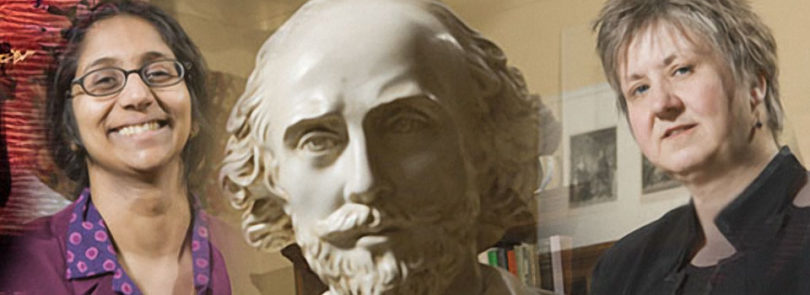de Story opened on Broadway. The story of two warring gangs, the Sharks and the Jets, went on to become a legend, but from opening curtain everyone in the audience knew the story’s origin: William Shakespeare’s Romeo and Juliet.
Writers have been borrowing from Shakespeare for more than 450 years. That’s why two faculty members in UGA’s department of English started Borrowers and Lenders: The Journal of Shakespeare and Appropriation.
Now, the online journal is drawing attention for winning Best New Journal of the year from the Council of Editors of Learned Journals, a national organization allied with the Modern Language Association. The Council includes some 450 editors of scholarly journals and is devoted to study in the humanistic disciplines.
“The journal examines Shakespeare and his afterlives as an artist and a cultural presence,” said co-general editor Christy Desmet, a Shakespeare scholar and director of the First-Year Composition Program in the English department. “What we’ve found is how many things he means in different contexts.”
Co-general editor with Desmet is Sujata Iyengar, who specializes in English Renaissance literature including Shakespeare.
In some ways the journal is typical of most scholarly publications. Submissions are rigorously peer-reviewed, issues often focus on themes and an appearance in it is important for a scholar’s résumé. Still, the subject matter can wander down intriguing paths, addressing such subjects as Shakespeare and Chinese opera, the Bard and Polish schoolchildren and even “the visual grammar of sexuality in Orson Welles’ Shakespeare films.”
Many world-class Shakespeare critics have jumped enthusiastically aboard the lively journal, with its multimedia presentations and sometimes offbeat subject matter. Terence Hawkes, emeritus professor of English at Cardiff University and general editor of the Accents on Shakespeare series, has published in Borrowers and Lenders, as have Ann Thompson, Graham Holderness, Lois Potter and many other top experts.
“But we also love publishing work by young assistant professors and have done a great deal of that,” said Desmet. “Some of the work of these up-and-coming scholars is amazing.”
Iyengar said that the mentoring and supporting of young scholars is, in fact, one of the best parts of working with the journal.
Both general editors had high praise for colleague Ron Balthazor, who teaches composition and humanities computing in the department and helped get the online journal put together. They likewise spoke highly of Bill Reeves of University Printing, who designed the Web site.
Iyengar said the reasons why other writers fade away and why one writer born in 1564 can still headline a major motion picture like Shakespeare in Love aren’t especially complicated.







